
Code: 08131087
China's Anti-Satellite Test
by Fredrick W Mahler
On January 11, 2007, the Peoples Republic of China (PRC) launched a direct-ascent anti-satellite (ASAT) weapon and destroyed one of their satellites. Uncovering Chinese motivations for this action has been problematic because the ... more
- Language:
 English
English - Binding: Paperback
- Number of pages: 134
Publisher: Biblioscholar, 2012
- More about this

56.59 €
RRP: 57.72 €
You save 1.13 €

In stock at our supplier
Shipping in 15 - 20 days
You might also like
-

Pastoral Instruction
21.23 € -

Any Day Now
13.01 € -
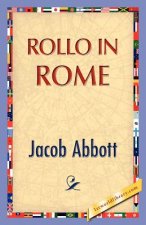
Rollo in Rome
12.81 € -1 % -

Extra Mile for Love
15.82 € -6 % -

Mastering the Power of Life
17.32 € -24 % -

Generation Gaps
19.42 € -6 % -

Blessings in the Storm
16.62 € -2 %
Give this book as a present today
- Order book and choose Gift Order.
- We will send you book gift voucher at once. You can give it out to anyone.
- Book will be send to donee, nothing more to care about.
More about China's Anti-Satellite Test
You get 143 loyalty points
 Book synopsis
Book synopsis
On January 11, 2007, the Peoples Republic of China (PRC) launched a direct-ascent anti-satellite (ASAT) weapon and destroyed one of their satellites. Uncovering Chinese motivations for this action has been problematic because the Chinese government has given virtually no explanation for this act. China seems to be actively attempting to challenge other nations' freedom to maneuver in space. Thus, the central research question is: Is the motivation behind current Chinese efforts in its ASAT program to challenge U.S. freedom of maneuver in space? China is not without precedent. During the 1960's to the late 1980's both the U.S. and U.S.S.R. conducted extensive ASAT tests in the development and deployment of ASAT weapons as part of their military space programs. In the Case of the U.S.S.R., ASAT weapons were extensively tested and deployed, but their relatively low success rate and marginal military value led the Soviet government to abandon the program in favor of arms control negotiations. In the Case of the U.S., ASAT was another component to ensure national security of all space assets. The U.S.S.R. study illustrates the inherent political instability of pursuing space weapons, while the U.S. study illustrates the political desire to remain weapons free in space, but retain the right to defend space assets with force if necessary. China, with its notion of active defense and deterrence doctrine, would seem to align closely with the U.S. in ASAT employment, and not challenge U.S. freedom of maneuver in space per se, but ensure its own freedom of maneuver in space as it continues to grow a dependence on space assets in the future.
 Book details
Book details
Book category Books in English Society & social sciences Education
56.59 €
- Full title: China's Anti-Satellite Test
- Subtitle: A Precursor to Challenge U.S. Freedom to Maneuver in Space?
- Author: Fredrick W Mahler
- Language:
 English
English - Binding: Paperback
- Number of pages: 134
- EAN: 9781249363934
- ISBN: 9781249363934
- ID: 08131087
- Publisher: Biblioscholar
- Weight: 254 g
- Dimensions: 246 × 189 × 7 mm
- Date of publishing: 13. September 2012
Trending among others
-
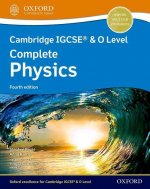
Cambridge IGCSE (R) & O Level Complete Physics: Student Book Fourth Edition
38.76 € -

Cambridge IGCSE (R) & O Level Complete Chemistry: Student Book Fourth Edition
42.47 € -
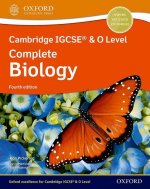
Cambridge IGCSE (R) & O Level Complete Biology: Student Book Fourth Edition
39.16 € -
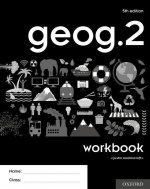
geog.2 Workbook
12.41 € -

Oxford IB Diploma Programme: IB Economics Course Book
62.30 € -

KS3 Maths 10-Minute Weekly Workouts - Year 7
8 € -8 % -

ESL/ELL Teacher's Survival Guide: Ready-to-Use Strategies, Tools, and Activities for Teaching En glish Language Learners of All Levels, 2nd Edition
27.74 € -26 % -

KS3 Maths 10-Minute Weekly Workouts - Year 8
8 € -8 % -

Powerful Teaching: Unleash the Science of Learning
26.24 € -26 % -

1000 TRIOS or gapped sentences for Cambridge Advanced and Proficiency Exams
24.53 € -

Algorithms
15.12 € -16 % -

Jim Trelease's Read-aloud Handbook
16.82 € -26 % -

The End of Education
16.02 € -14 % -

Deep Healing and Transformation
48.48 € -

Donny's Unauthorized Technical Guide to Harley Davidson 1936 to Present
43.17 € -23 % -

Towards a Philosophy of Education in Modern English: Volume 6 of Charlotte Mason's Series
15.42 € -

AQA GCSE German Higher Practice Papers
15.22 € -

Motivational Interviewing: A Workbook for Change Agents
25.23 € -1 % -

All About Diamonds
26.44 € -

OET Preparation
9.81 € -

Business Partner B1 Workbook
17.42 € -7 % -

Blue Book of Grammar and Punctuation: An Easy- to-Use Guide with Clear Rules, Real-World Examples , and Reproducible Quizzes, Twelfth Edition
15.12 € -28 % -

Business Partner B1+ Workbook
16.82 € -3 % -

Speed and Accuracy: Multiplication
8.61 € -

Pearson Edexcel International GCSE (9-1) English Language B Student Book
50.38 € -
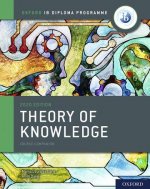
Oxford IB Diploma Programme: IB Theory of Knowledge Course Book
57.99 € -

Business Partner B2 Workbook
16.82 € -3 % -

Positive Discipline Tools for Teachers
14.12 € -26 % -

Speed and Accuracy: Division
8.61 € -
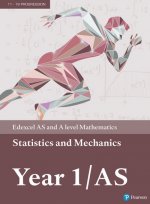
Pearson Edexcel AS and A level Mathematics Statistics & Mechanics Year 1/AS Textbook + e-book
17.62 € -
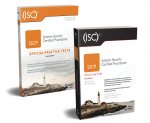
(ISC) SSCP SG & SSCP Practice Test Kit, 3e
64.50 € -28 % -

Read Write Inc. Phonics: Red Ditty Book Bag Books (Mixed Pack of 10)
74.02 € -

Imagine If...
10.91 € -23 % -

OET Reading Subtest Preparation
12.51 € -7 % -

Vol 2 Blackletter Lettering Adventures
25.54 € -
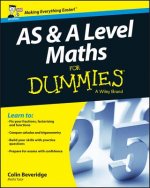
AS & A Level Maths For Dummies
17.32 € -27 % -
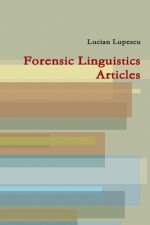
Forensic Linguistics Articles
14.42 € -1 % -
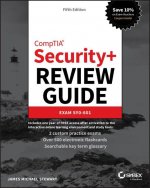
CompTIA Security+ Review Guide - Exam SY0-601
24.83 € -23 % -

Practical Guide on Veterinary First Aid using Homeopathy
14.72 € -2 % -
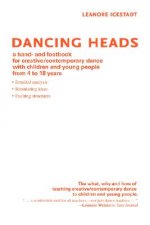
Dancing Heads
12.11 € -24 % -

Abolition of Man
18.82 € -

Human Landscapes from My Country
28.54 € -21 % -

Corrected Squares of The Book of Abramelin
501.58 € -
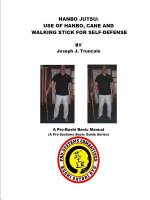
Hanbo Jutsu: Use of Hanbo, Cane and Walking Stick for Self Defense
11.41 € -

Freiarbeitsmaterial für die Grundschule - Deutsch - Klasse 1/2
22.73 € -4 % -

English Language & Literature WORKBOOK: York Notes for GCSE (9-1)
8.81 € -10 % -

North Korea's Military Threat
25.33 € -

Release Your Inner Drive
15.02 € -18 % -

Effect of Registration Errors on Tracking in a Networked Radar System
56.59 € -1 %
Collection points Bratislava a 2642 dalších
Copyright ©2008-24 najlacnejsie-knihy.sk All rights reservedPrivacyCookies


 15549 collection points
15549 collection points Delivery 2.99 €
Delivery 2.99 € 02/210 210 99 (8-15.30h)
02/210 210 99 (8-15.30h)